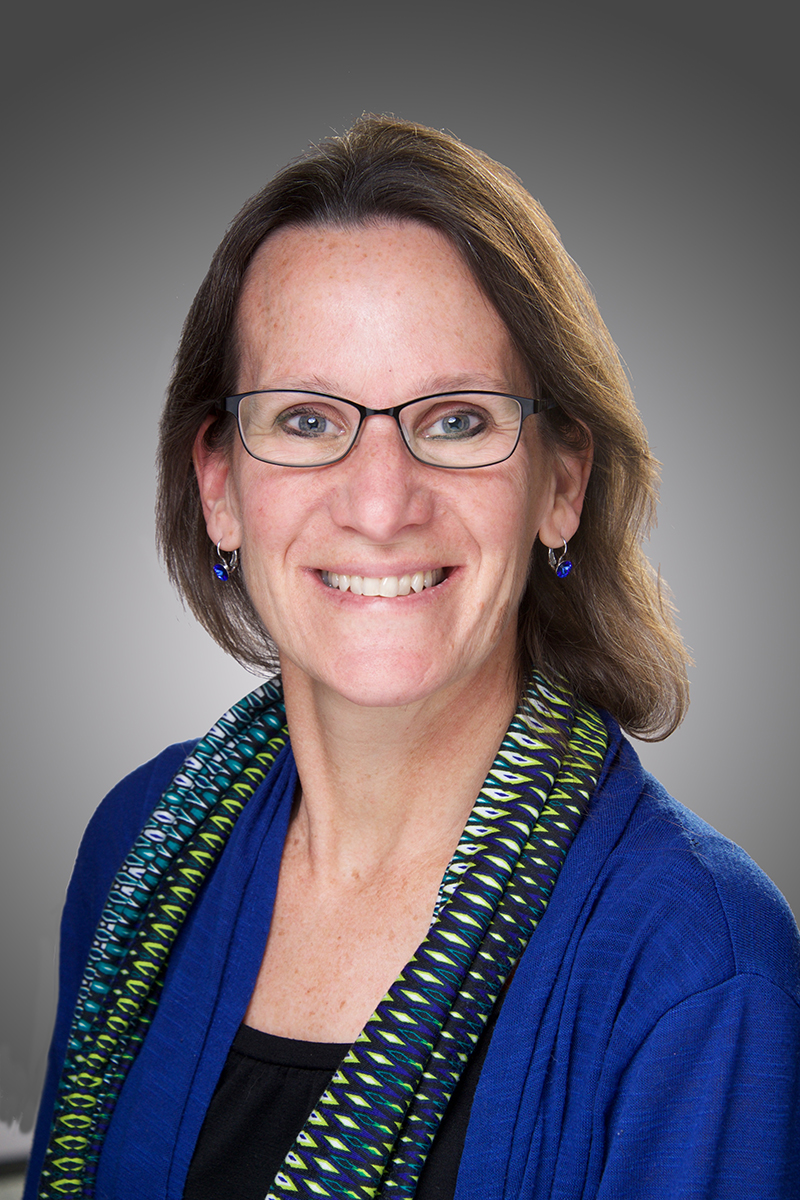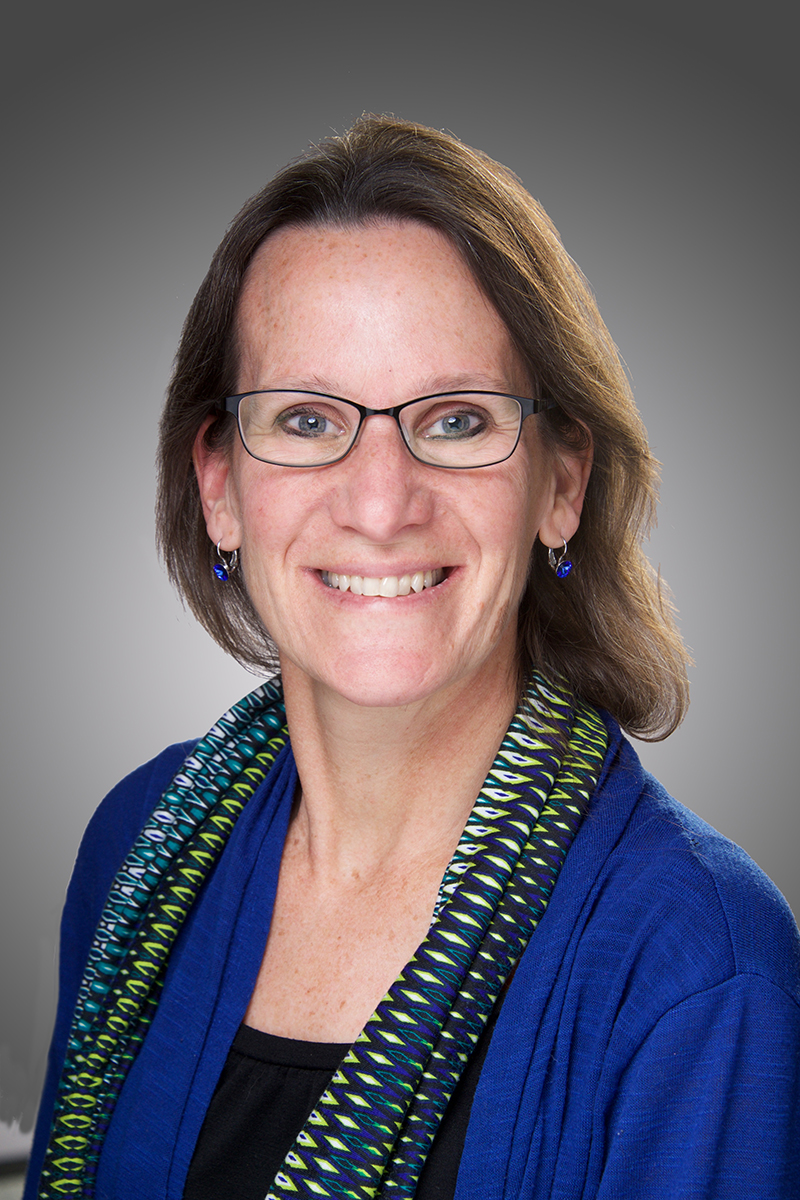
Advanced Practice Nurse
University of Iowa Hospitals & Clinics
Karen Stenger didn’t intend to pursue a career in nursing, but patients and their families, as well as her co-workers, are grateful she did.
“Through our month-long stay at the hospital, Karen was always there to support our family and explain to us in detail what to expect in the coming days, months and years,” Jay and Tammy Schaaf wrote of their experience after their daughter suffered a spinal cord injury. “Her expertise and support were and will be forever greatly appreciated.”
Ms. Stenger, a nursing practice leader, is in her 30th year at University of Iowa Hospitals and Clinics, with much of her work focused on helping patients with spinal or head injuries.
“It doesn’t feel like I’m going to work – every day is different,” she said. “You meet people when they’re at the darkest moment of their life… who appreciate what you do.”
Nursing wasn’t in her plans when she entered Iowa State University in 1981, intending to earn a degree in mathematics. She was in a large auditorium for a freshman lecture when the woman next to her suffered a seizure. Ms. Stenger was able to attract the professor’s attention to obtain help for the student, but “that awful feeling of not knowing what to do” stuck with her, she said.
That same year, she was in a library at ISU when a worker there also had a seizure. Ms. Stenger recalled walking back to her dormitory and deciding to switch to the health care field. She went on to earn bachelor’s and master’s degrees from the University of Iowa College of Nursing.
Not a day goes by that she regrets her decision.
“Nursing is where I’m meant to be,” she said.
Her co-workers agree, noting that Ms. Stenger’s influence is seen in myriad areas.
“I have come to think of Karen as a mentor as she has been a consistent source of support and guidance during my nursing career,” Erin Rindels, stroke nurse coordinator for the Department of Neurology, wrote in her nomination letter for Ms. Stenger.
Ms. Rindels was in her first year as a staff nurse and struggling with a family’s reaction to an end-of-life issue when Ms. Stenger invited her to present her situation to a professional nurses group.
“I was unaware such a resource was available at that time,” Ms. Rindels wrote. “Karen’s guidance and support during this difficult time allowed me to continue to grow as a nurse and provided me with the confidence to present at a meeting.”
Marcus Seaton, manager of the University of Iowa’s ergonomics program, said Ms. Stenger is committed to staff safety, as well. She brought together a multidisciplinary group to educate staff, and helped reduce injuries related to patient handling from 122 annually in 2001 to 37 annually in 2014.
“This change at UIHC is undoubtedly due to Ms. Stenger’s innate ability to identify vital behaviors and influence others to carry them out,” Mr. Seaton wrote.
Michele Wagner, advanced practice nurse in the Intensive and Specialty Services Nursing Division, noted that Ms. Stenger has also been a driving force in the use of augmentative and alternative technology to help patients who are paralyzed or on ventilators to communicate.
“She identifies patients in need and has worked tirelessly with a multidisciplinary team to create, refine and implement a wide variety of options from very low tech communication cards to computer-based systems that have speech-generating capabilities,” Ms. Wagner wrote in her nomination letter. “She is an asset to UIHC, nursing and the Corridor.”
Ms. Stenger is also well-known as a model of community service, volunteering at St. Mary’s Church, Regina High School and in Iowa City, as well as in her role as a staff volunteer supervisor, where she oversees a volunteer corps donating nearly 2,000 hours annually.
While Ms. Stenger has given a multitude of presentations, made the list of 100 Great Iowa Nurses and received numerous other accolades, she doesn’t seek the limelight. Rather, she is rewarded when she hears of patients who have gone on to regain their abilities and come back for a “million dollar hug.”
Emily Wynn, interim director of clinical functions, noted that Ms. Stenger gives hope to patients’ families through her clear explanations and genuine nature.
“Her knowledge and caring helps people move forward and find comfort in some of the worst scenarios possible,” Ms. Wynn wrote. “It’s honest and it’s genuine. It is hope.”
– Cindy Hadish





